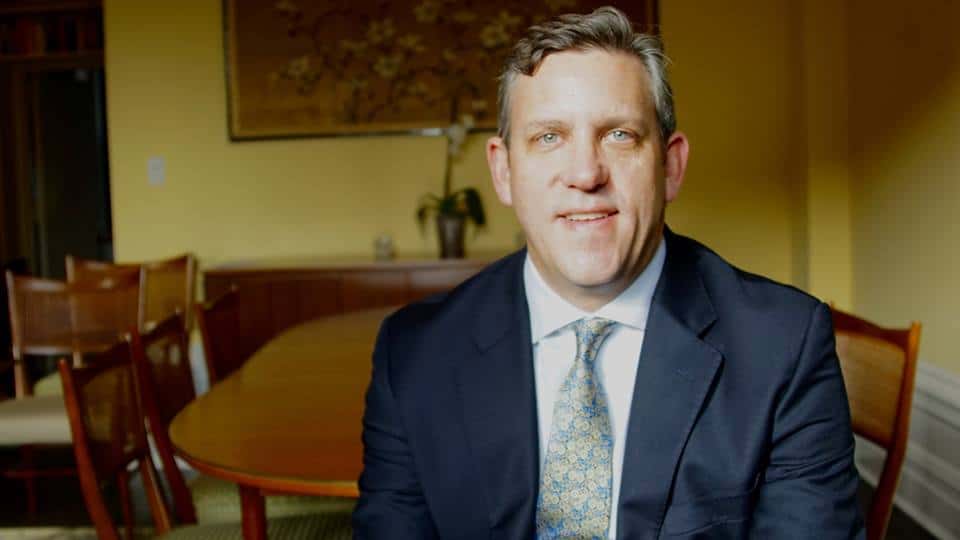What the exiting New York Philharmonic chief told his shocked staff
mainIn a word, nothing.
Matthew VanBesien sent them a very long letter (published below) which gives no clue as to his reason for going on a job hunt. He leaves the orchestra after just five years and on the threshold of a painful transition.
Matthew VanBesien got a new job. The NY Phil is left floundering.

Letter to staff:
January 24, 2017
Please forgive the impersonal nature of this communication, but for those whom I’ve not had a chance to address this morning, it is timely I write to let you know today that I am announcing my resignation as President of the New York Philharmonic, effective May 1. I am also announcing that in early July 2017, I will become the 7th President of the University Musical Society, or UMS, at the University of Michigan in Ann Arbor.
I have made this difficult decision both professionally and personally, for it is no easy thing to leave a great institution like the New York Philharmonic and such great colleagues. I am, however, excited to lead UMS in its next chapter, and proud to be succeeding a great colleague and friend in Ken Fischer (UMS’ President for the past 30 years).
As a bit of background, I began to know UMS and the University of Michigan back in 2011, when I attended a Chief Executives Program session at the Ross School of Business. Following some Philharmonic tour performances at UMS in 2013, Ken Fischer and I began to discuss creating a multi-year partnership between our two organizations, formally launched in October 2015 with a truly amazing residency project. The relationship between UMS, the University of Michigan has flourished, and I’m proud that the next New York Philharmonic residency there will take place in November 2017.
I’ve often introduced myself at public events here by saying that I have the great privilege to be the President of the New York Philharmonic. I’ve meant it sincerely and profoundly. These past five years at the Philharmonic, following leadership posts in Melbourne and Houston, and preceded by my years as a professional horn player at the Louisiana Philharmonic, have been an extraordinary opportunity and life enriching experience. It has been both thrilling and humbling to play a role in the Philharmonic’s legacy, and I am eternally grateful to all of you – our Musicians, my colleagues on the Staff, our Board, International Advisory Board, the newly-formed President’s Council, and our wonderful Volunteers.
My tenure here has also been made more special through my close work with Oscar Schafer, Chairman, Peter May, Vice-Chair, and Gary Parr and Paul Guenther as dedicated and always helpful Chairman Emeriti. Working with Alan Gilbert has been a terrific and rewarding experience, not only because of the great projects and programming we’ve all helped present, but also because I knew Alan from the very beginning of my management career in Houston, and I could not have asked for a better colleague and partner here. And while not yet our Music Director until 2018, the opportunity to help select and appoint Jaap van Zweden will always count as one of the best experiences of which I’ve been part – I know Jaap will do extraordinary things here and I’ve let him know I will always be at the ready to help him in any way I can.
One of the most difficult but exciting aspects of my decision is beginning a new career chapter after 25 years working with professional orchestras. With all the challenges we face, I still believe that performing great music for audiences seeking a shared and transformative experience, is now more important than ever. I have no intention of withdrawing from the important dialogues taking place within our art form, and hope to use my new role and platform to further explore how we will engage audiences and our communities in even greater measure.
Working with all of you and being your colleague has been extremely rewarding and gratifying for me, and the support and encouragement you’ve provided along the way has helped make me a better leader. I have many things I am determined to accomplish with you before I depart later this spring, and will look forward to the next several months of working together.
My best wishes and thanks for your support.
Matthew
Matthew VanBesien
President
New York Philharmonic





Another sign of a deep seated sickness.
The “industry” (by this I mean primarily UK and North American ‘managers’ ‘promoters’ and other forms of leeches) needs to burn to the ground and the earth underneath salted.
Probably a comment by a performer who was sent by his agent to a venue in The Netherlands.
But contemporary music life – the central performance culture – has become so complicated with contracts, schedules, taxes (complex with internationally-operating performers), press kits, promotion material, network of useful contacts, travel & hotel arrangements, tour logistics, personal quirks, financial pressures, stress management, and singers, that a performer’s career simply cannot be dealt with by the performer alone if he/she is to study/practice AND perform. You cannot demand from a customer to go into the field and harvest his potatoes himself. A mediator is needed and really, music management is quite a handfull.
That’s a pretty rambling exit letter. All could have been very nicely stated in three shortish paragraphs.
That would not have satisfied the media who are anxious to hear about catastrophe, in these Trumpical times. An orchestra is not a fixed monument but an ensemble in constant flux, and surely the NY Phil will be able to attract other talented people to head it along a couple of logistically-complex years. All this is not an existential threat.
Being the head of any of the top NY arts institutions is a thankless job, the bar is set so high — you’re expected to raise half a billion dollars, you’re expected to be on the avant garde of programming, you’re expected to raise ticket sales, raise the endowment, raise morale, raise salaries, aise the profile, satisfy the unions — that even when one succeeds in two or three of these areas, it’s still “what have you done for me lately?” from some other constituent.
And you find yourself paid less than your counterpart in LA or Chicago or Boston, and a lot less respect that your counterpart in London or Paris or Vienna.
^ this ^